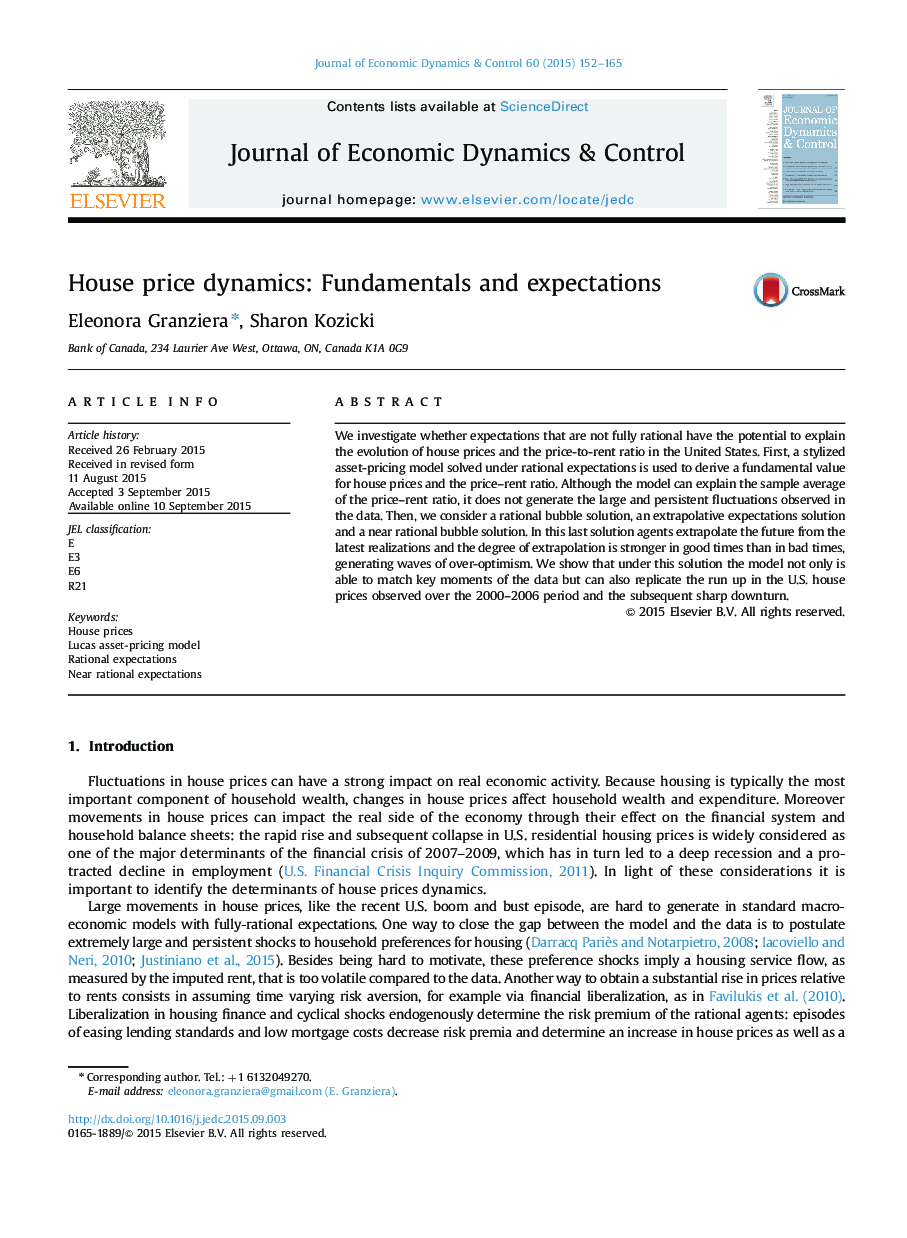| Article ID | Journal | Published Year | Pages | File Type |
|---|---|---|---|---|
| 5098214 | Journal of Economic Dynamics and Control | 2015 | 14 Pages |
Abstract
We investigate whether expectations that are not fully rational have the potential to explain the evolution of house prices and the price-to-rent ratio in the United States. First, a stylized asset-pricing model solved under rational expectations is used to derive a fundamental value for house prices and the price-rent ratio. Although the model can explain the sample average of the price-rent ratio, it does not generate the large and persistent fluctuations observed in the data. Then, we consider a rational bubble solution, an extrapolative expectations solution and a near rational bubble solution. In this last solution agents extrapolate the future from the latest realizations and the degree of extrapolation is stronger in good times than in bad times, generating waves of over-optimism. We show that under this solution the model not only is able to match key moments of the data but can also replicate the run up in the U.S. house prices observed over the 2000-2006 period and the subsequent sharp downturn.
Keywords
Related Topics
Physical Sciences and Engineering
Mathematics
Control and Optimization
Authors
Eleonora Granziera, Sharon Kozicki,
